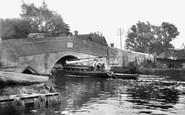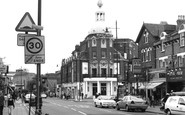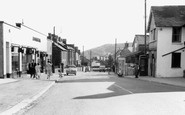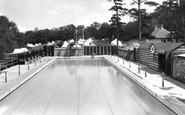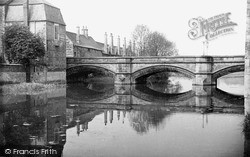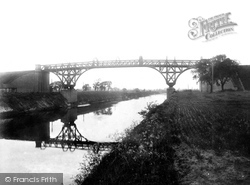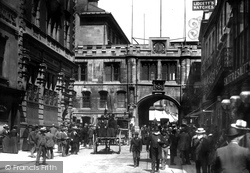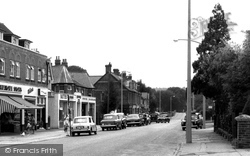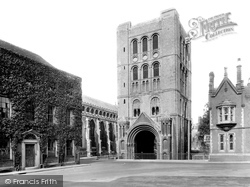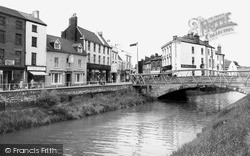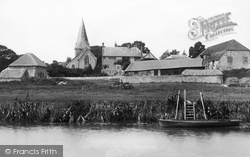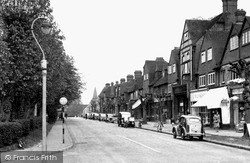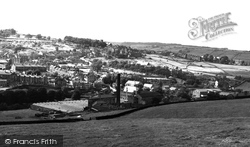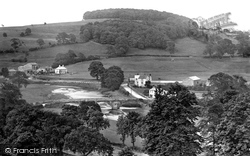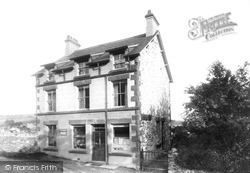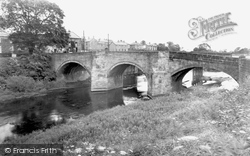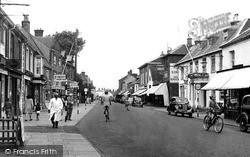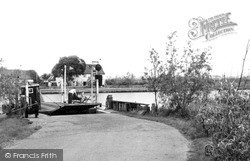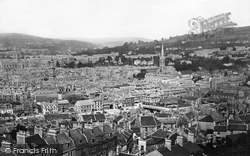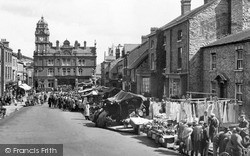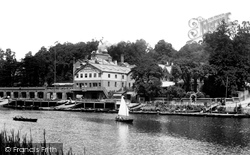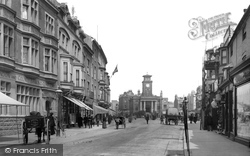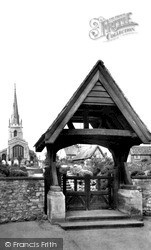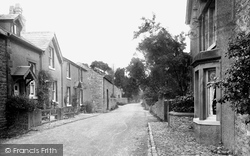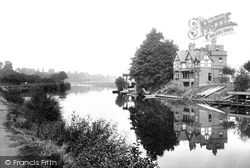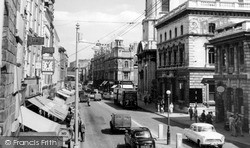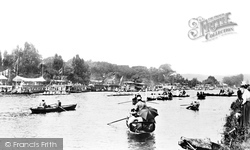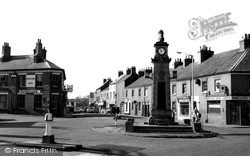Places
3 places found.
Those places high-lighted have photos. All locations may have maps, books and memories.
Photos
68 photos found. Showing results 1,021 to 68.
Maps
12 maps found.
Books
15 books found. Showing results 1,225 to 15.
Memories
7,562 memories found. Showing results 511 to 520.
Boating On The Broads
Two years after our first visit we came again, bringing our own river cruisers towed by our own cars. We had located a slipway to launch at Martham boatyard prior to starting the holiday. The location at Martham was ...Read more
A memory of Potter Heigham in 1970 by
War Time Wimbledon
During the war I was a pupil at St Mary's school in Russel Road, about 100 yards from the theatre. When there was an air raid during school time, the whole school would march up to the stage door of the theatre and all of us ...Read more
A memory of Wimbledon in 1940 by
Pencoed Childhood Memories
The building on the left is the old Coop, next door was the chemist where I used to get my root sticks, then there was an alleyway right beside the car on the left in the picture. You cannot see it in the picture but ...Read more
A memory of Pencoed in 1970 by
Happy Days.
I was 16 yrs old when I moved to Deal with my parents; we moved into a lovely old house in Cowper Road. I soon made friends. I used to go into a coffee bar called The Good Intent, it was always busy, the duke box was always playing Buddy ...Read more
A memory of Deal in 1958
Childhood Treasured Places
Visiting Box Hill brings back many happy family memories. I come from Manchester & we used to visit my aunt & uncle who moved from Kingston to Leatherhead. I loved swimming & this has always been one of my ...Read more
A memory of Box Hill in 1967 by
My Oldham
I was born in Oldham in 1946. Lived in Norfolk Street, Chadderton until 1953 then moved to the Isle of Wight. My mother, Marjorie Bolton, lived in Hollinwood and represented Oldham as Cotton Queen in the 1930's. Have always loved the ...Read more
A memory of Oldham in 1946 by
A Happy Accrington Childhood
My brother Anthony and I grew up in Barnes Street/Lee Street where my parents ran an off-licence from about 1953 - 1962. We both went to Miss Caulfield's Preparatory school and my brother went on to Blackburn ...Read more
A memory of Accrington in 1960 by
The Seats At Lynemouth
When we were teenagers and bored we would sit on old men's seat at the junction over the bridge and watch the smelly tankies go by. Some of the lads would go tanky hopping and grab on the back for a ride! The girls would ...Read more
A memory of Newbiggin by
Strawberries For Tea
Every year on my birthday my mother and father made June 21st. (or the closest Saturday) a very special day for me. Since I was old enough to remember I had strawberries on my birthday. However, that was not all. The ...Read more
A memory of Buckhurst Hill by
Growing Up In Pembridge
I was born in 1960 at Glanarrow Cottages, Bridge St. All my early memories are of a happy childhood. I can remember the deep snow of 1963, when I opened the back door it seemed that the snow was halfway up it!!! I can ...Read more
A memory of Pembridge by
Captions
2,501 captions found. Showing results 1,225 to 1,248.
This view was taken looking west, in the opposite direction to 72314. The chimneystacks of Lord Burley`s Hospital are an eye-catching feature along the south bank of the Welland.
At this time Warburton was a small village on the south bank of the Mersey, five miles west of Altrincham and twelve miles from Manchester.
Lincoln's celebrated Stone Bow is the later 15th-century medieval gate into the walled town, above which is the basically Tudor city Guildhall.
The Mini first took to the road in 1959, so it was a novelty when this picture was taken (centre left).
The building on the right was designed by Lewis Cottingham in 1846 as the Penny Bank, which functioned until 1892.
Spalding's townscape is 'made' by the River Welland, which bisects the town. There are roads along each bank and houses face the river, giving it a slightly Dutch feel.
We are on the navigable and tidal River Arun.The church of St John the Evangelist has a shingled broach spire; flint and stone are used for walling and buildings.A ferry with landing steps connected
At the far end a bank in Wren/Queen Anne style completes the row. Across the road beyond is a good Art Nouveau/Gothic church of 1912.
This view of the village on the hill from Hebden Road is dominated by the two big mills, the Ivy Bank Mills on the left and Bridgehouse Mill in the foreground.
Photographed from the Yorkshire bank of the Ribble, the view looks across Sawley to Noddle Hill.
The plate by the window to the left of the door (now a window) shows that this was also the telegraph office and money order office, and also the Post Office Savings Bank.
Felton stands on the north bank of the Coquet, and it was here that the Great North Road once crossed the river by way of the old bridge featured in the picture.
The seven-bay Crown Hotel (right), with columned porch, has a large and elaborate sign over the street. The painted advertisement next door has gone, but the gable beyond retains the date 1662.
The chain-ferry at Reedham is one of the last survivals of its kind: it is a raft hauled across the river by means of a wheel pulling on a chain.
Taken from near the Wells Road above the south bank of the River Avon, this is an archive view, for much was destroyed in the Baedeker and other bombing raids during World War II.
Despite its name, Newtown, nestling by the waters of the Severn, was founded in the 10th century.
As we approach Richmond, this view from the west bank looks towards the Petersham Road across to the former Messum's Boatyard.
This photograph of South Street shows the premises of the London and County Banking Company on the left.
Continuing along the west side of the River Nene as it heads north-east, we reach Islip. The river forms the parish boundary with Thrapston, now a small industrial town on the east bank.
The building on the left was a non-conformist chapel and bears the date 1668, whilst hidden at the end is the Calf's Head.
The photographer is standing on the west bank looking across to the original 1823 grandstand on the edge of Pitchcroft.
Already, The Cross is showing signs of congestion, but for the time being people still feel relaxed enough to linger in groups chatting - The Cross was traditionally a meeting place.
In 1888 there were no less than 88 houseboats and 55 launches moored along the river banks.
Apart from the Baker's Arms on Barkby Road corner and an extended bank, the village's main shopping area is now but a memory.
Places (3)
Photos (68)
Memories (7562)
Books (15)
Maps (12)

